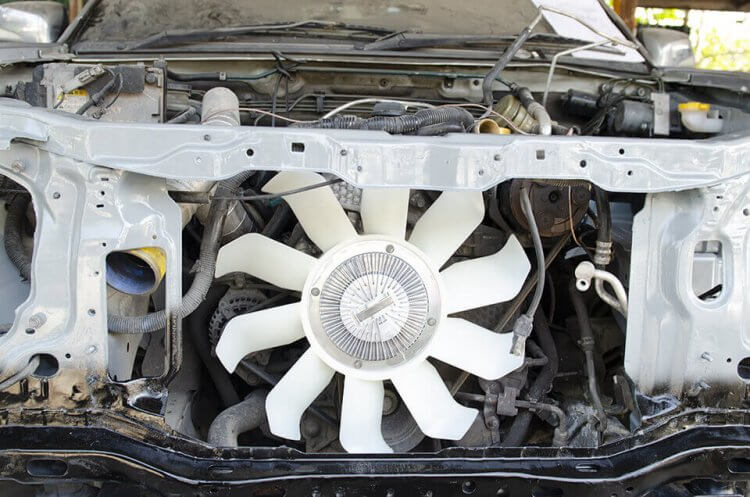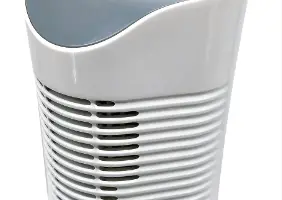Have you noticed that your car isn’t running as smoothly as it used to? Are you worried that there may be an underlying issue with the transmission? It might be time to take a closer look at your fan clutch. A bad fan clutch can cause all sorts of problems, from decreased engine power and reduced fuel efficiency, all the way up to damaging your transmission.
Contents
In this article, we’ll discuss how a bad fan clutch can cause transmission problems so you can determine whether it’s time for repairs or replacement.

Can A Bad Fan Clutch Cause Transmission Problems?
Yes, a bad fan clutch can cause transmission problems. The fan clutch is an integral part of the cooling system, as it regulates how much air passes through the radiator. If the fan clutch is not functioning properly, it can restrict airflow and cause the engine to run hotter than normal. This can lead to increased wear on the transmission components, which can eventually cause failure or other issues. Additionally, if the fan clutch isn’t spinning fast enough due to a faulty connection or lack of lubrication, it can lead to an increase in temperature in the transmission fluid, leading to further damage.
Having a mechanic inspect your vehicle regularly will help you avoid costly repairs down the road and keep your vehicle running smoothly for years to come.
Benefits Of A Working Fan Clutch
A working fan clutch is essential to keeping a vehicle running smoothly. It helps regulate temperatures, protect the engine from overheating, and improve its overall performance. In addition, it can help reduce fuel consumption and noise levels.
- The main benefit of a working fan clutch is that it keeps the vehicle’s engine temperature regulated. When the temperature gets too high, the fan clutch automatically speeds up or slows down to keep it at a safe level. This not only prevents damage to the engine but also improves its overall performance.
- Additionally, it can help reduce fuel consumption by allowing the engine to run more efficiently while reducing emissions.
- Finally, a fan clutch helps reduce noise levels as well by dampening sound waves before they reach the driver’s ears. This makes for a smoother ride and reduces distractions caused by loud noises coming from under the hood.
These are just some of the many benefits of having a working fan clutch in your vehicle. Let us now see signs of a faulty fan clutch need to be identified to ensure your car runs properly and safely.
Recommended Reading: Should A Fan Clutch Spin Freely When Hot?
Signs Of A Faulty Fan Clutch
It is important to be aware of the signs of a faulty fan clutch as it can cause transmission problems if left unchecked. The following are five common signals that may indicate an issue with the fan clutch:
- Unusual noise when the engine is running, such as rattling or grinding
- Engine temperature gauge reading higher than usual
- Noticeably low fuel economy
- Fluctuating engine temperature when driving at low speeds or in traffic
- Dark deposits on the underside of the fan blade
If you notice any of these signs, it is important to have your vehicle inspected by a professional mechanic as soon as possible. A faulty fan clutch can cause serious damage to your vehicle’s engine and transmission components if not addressed quickly. Knowing how to recognize these signs is essential for keeping your car running smoothly and safely. So, understanding how does a fan clutch work and identifying its signs are critical for maintaining your vehicle’s performance.
How Can A Faulty Fan Clutch Affect The Transmission?
A fan clutch is a device that connects the engine’s fan to the crankshaft. It allows the fan to spin at different speeds, depending on the amount of coolant entering the engine. If the fan clutch fails, it can cause transmission problems because it won’t be able to spin fast enough to keep the transmission cool. This can lead to overheating and transmission damage.
Another problem that could arise from a faulty fan clutch is inadequate lubrication of the transmission. The fan helps circulate oil throughout it, keeping all moving parts lubricated and preventing premature wear. Without adequate lubrication, components will start wearing down faster, resulting in mechanical issues and possible failure of the transmission.
In addition, a failing fan clutch can cause belt slippage, which will affect how well power is being transferred from the engine to other parts of your vehicle such as wheels or axles. This can lead to performance issues such as reduced speed and fuel efficiency, as well as increased noise levels due to grinding or slipping belts.
The consequences of a malfunctioning fan clutch are serious and should not be ignored. It’s important to get it fixed as soon as possible in order to prevent further damage and costly repairs down the road. Transitioning into the next section about why this component may fail in order for you to recognize warning signs early before any severe damage occurs.
Reasons Why The Fan Clutch May Fail
The fan clutch is an integral component in the cooling system of any vehicle. If it fails, it can cause a number of problems, including transmission issues. To understand how a faulty fan clutch can affect the transmission, it is important to know what causes it to fail in the first place.
The following table outlines some reasons why the fan clutch may fail:
| Reason | Potential Consequences |
|---|---|
| Worn bearings | Poor cooling performance and increased heat buildup in the engine compartment |
| Contaminated oil from coolant leaks | Loss of lubrication and bearing failure leading to poor cooling performance and overheating |
| Leaky seals | Coolant leakage from the radiator leading to overheating and possible damage to other components such as the transmission |
Malfunctioning or worn-out fan clutches can lead to a number of issues that directly impact your vehicle’s transmission. Overheating can cause excessive wear on internal components, resulting in fluid loss and decreased lubrication which will affect shifting ability and cause premature wear on other components. It can also lead to engine misfires, potential mechanical damage, and even complete breakdowns.
Other Potential Causes Of Transmission Problems
Although a bad fan clutch can contribute to transmission problems, it’s not the only cause. Following are the other possible causes:
- Poor maintenance or improper repair of the transmission can also lead to issues. When a vehicle isn’t regularly serviced, dirt and debris can build up inside the transmission and cause friction between its components. This friction can damage seals and gaskets, resulting in leaking fluid or internal damage.
- Additionally, if a transmission is improperly repaired or rebuilt, faulty parts and incorrect installation can cause similar issues.
- In some cases, an engine misfire or running too hot may also contribute to transmission problems. When an engine misfires, it sends excess vibration through the drivetrain which can damage the transmission’s internal components over time.
- A running engine that is too hot will increase the temperature of the transmission fluid resulting in accelerated wear on the internal components.
To prevent potential transmission problems from occurring, regular maintenance should be performed as recommended by the vehicle manufacturer to ensure any potential issues are identified and resolved before becoming serious.
Frequently Asked Questions
Following are a few FAQs about the bad fan clutch causing transmission problems:
Conclusion
Yes, a bad fan clutch can cause transmission problems. That’s why it’s important to pay attention to the signs that indicate a faulty fan clutch and to make sure it’s properly maintained. If you notice any of the common symptoms like an engine running hot or losing power, it’s time to replace the fan clutch before it causes further damage to your vehicle.
Replacing the fan clutch isn’t always necessary if your car is still in good condition and has been regularly serviced. However, if you’ve noticed any of the warning signs mentioned above, replacing the fan clutch could help prevent costly transmission repairs in the future.










Add Comment